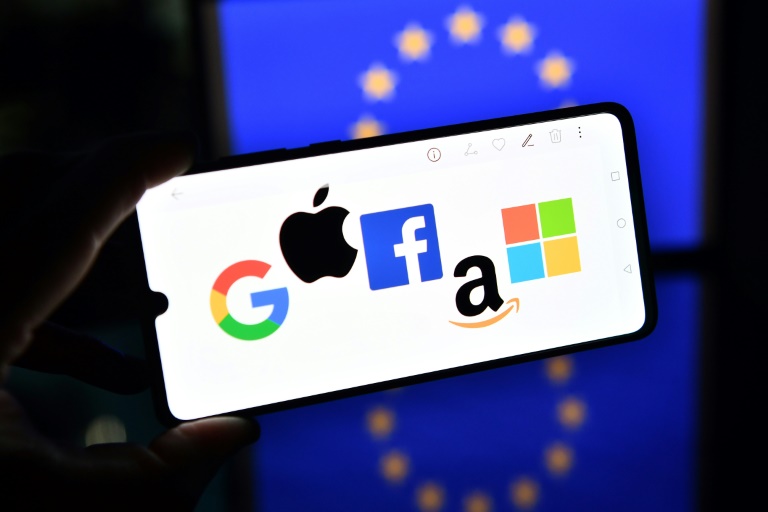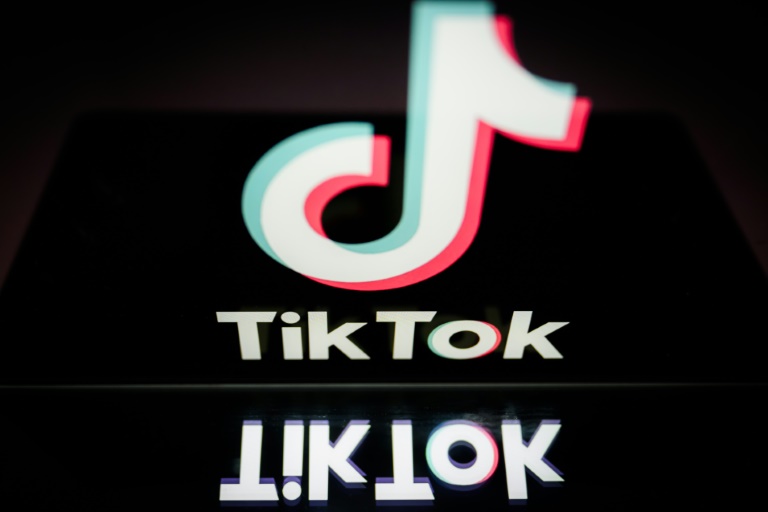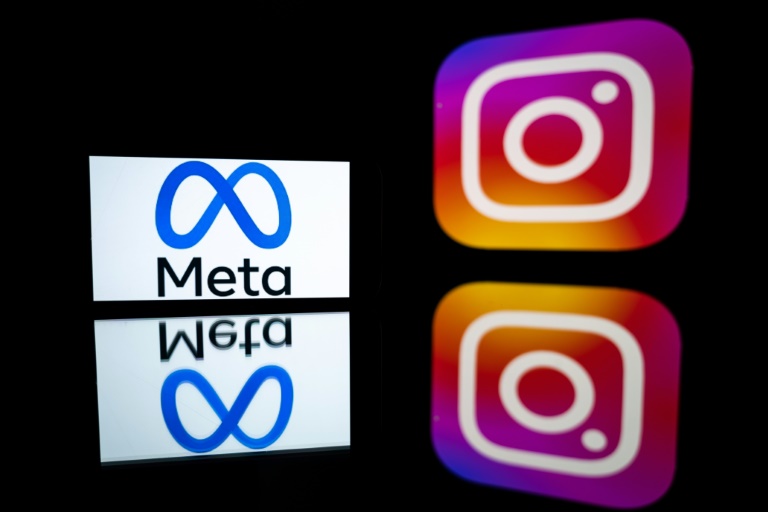The European Union is on a mission to get US tech giants to stop avoiding tax, stifling competition, profiting from news content without paying and serving as platforms for disinformation and hate.
On Wednesday, Irish regulators slapped a fine of 390 million euros ($413 million) on Facebook owner Meta for breaking the rules on personal data collection — though the firm told AFP it would appeal.
Here is a summary of the tussles between Silicon Valley and Brussels.
– Stifling competition –
The digital giants are regularly criticised for dominating markets by elbowing out rivals.
In July 2022, the European Parliament adopted the Digital Markets Act to curb the market dominance of Big Tech, with violators facing fines of up to 10 percent of their annual global sales.
Brussels has slapped over eight billion euros in fines on Google alone for abusing its dominant market position.
In 2018, the company was fined 4.3 billion euros — the biggest ever antitrust penalty imposed by the EU — for abusing the dominant position of its Android mobile operating system to promote Google’s search engine.
Google lost its appeal against that decision in September 2022, though the fine was reduced to 4.1 billion euros.
The firm is also challenging a 2.4-billion-euro fine from 2017 for abusing its power in online shopping and a separate 1.5-billion-euro fine from 2019 for “abusive practices” in online advertising.
The EU has also gone after Apple, accusing it of blocking rivals from its contactless iPhone payment system, and fined Microsoft 561 million euros in 2013 for imposing its browser Internet Explorer on users of Windows 7.
The EU is also scrutinising Meta for tying its social media service Facebook to its classified ads service Facebook Marketplace.
– Taxation –
The EU has had less success in getting US tech companies to pay more taxes in Europe, where they are accused of funnelling profits into low-tax economies like Ireland and Luxembourg.
In one of the most notorious cases, the European Commission in 2016 found that Ireland granted illegal tax benefits to Apple and ordered the company pay 13 billion euros in back taxes.
But the EU’s General Court later overturned the ruling, saying there was no evidence the company broke the rules.
The Commission also lost a similar case involving Amazon, which it had ordered to repay 250 million euros in back taxes to Luxembourg.
In October 2021, following extensive lobbying by European countries, the G20 group of nations agreed on a minimum 15-percent corporate tax rate.
– Personal data –
Tech giants are regularly criticised over how they gather and use personal data.
The EU has led the charge to rein them in with its 2018 General Data Protection Regulation, which has since become an international reference.
Companies must now ask for consent when they collect personal information and may no longer use data collected from several sources to profile users against their will.
Amazon was fined 746 million euros by Luxembourg in 2021 for flouting the rules.
Last year, Irish authorities fined Instagram, a Meta subsidiary, 405 million euros for breaching regulations on the handling of children’s data.
In November, Facebook was fined 265 million euros over a massive data leak of more than half a billion users.
According to privacy activists, Wednesday’s ruling imposing a 390-million-euro fine also banned Facebook from collecting personal data unless the firm gives a “yes/no” consent option.
– Disinformation, hate speech –
Social networks, particularly Facebook and Twitter, are often accused of failing to tackle disinformation and hate speech.
In July last year, the European Parliament approved a Digital Services Act that forces big online companies to combat hate speech, disinformation and piracy, or face fines of up to six percent of their global turnover. It comes into effect in 2023.
– Paying for news –
Google and other online platforms are also accused of making billions from news without sharing the revenue with those who gather it.
To tackle this, the EU created a form of copyright called “neighbouring rights” that allows print media to demand compensation for use of their content.
After initial resistance, Google and Facebook agreed to pay French media, including AFP, for articles shown in web searches.

 Business4 months ago
Business4 months ago
 Business4 months ago
Business4 months ago
 Events6 months ago
Events6 months ago
 People4 months ago
People4 months ago
 Events3 months ago
Events3 months ago
















